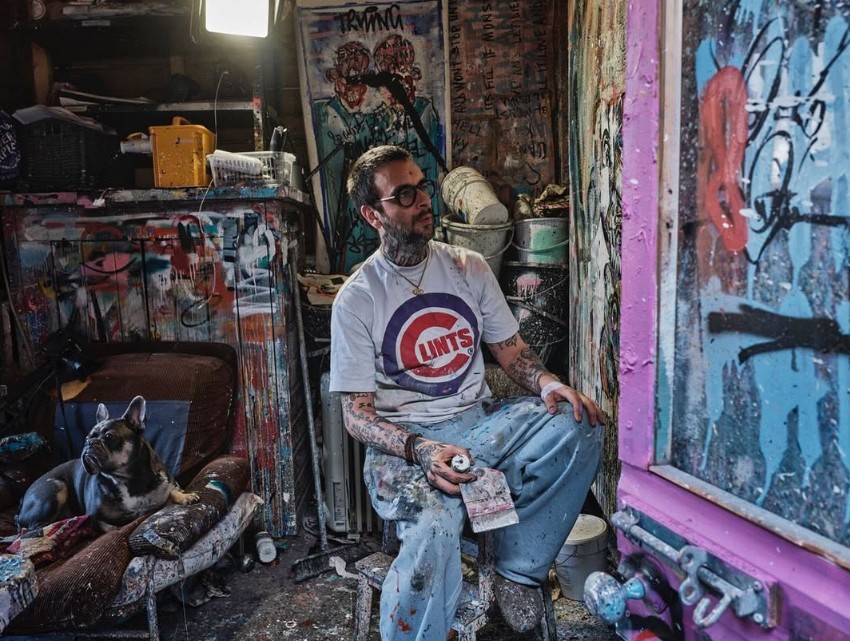Neil Bunting

(1957-2024) Born on February 11, 1957, Neil Bunting's life was one of resilience, creativity, and profound introspection. He passed away on June 12, 2024, at the age of 67 in York Hospital's Critical Care Unit following a brief illness. Neil's early years were spent in Kettering, Northamptonshire, where he grew up alongside his parents, Kath and Joe, and his sister, Christine. In 1967, the family relocated to Scarborough after purchasing a guest house. Neil, a naturally shy and introspective individual, often preferred solitude over the bustle of social interactions, finding it easier to explore his inner world than to navigate the demands of external relationships. Music became a cornerstone of Neil's life from a young age. Beginning piano lessons at just five years old, he nurtured a deep passion for the art form, carrying his studies with him to Scarborough and excelling academically in the process. After achieving strong O-level results, Neil attended the local Sixth Form College, where his musical talent flourished. This love for music led him to Kingston Polytechnic in London, where he continued his formal education. Despite early promise, Neil's life was deeply affected by loss and tragedy. In 1974, during a family cruise celebrating his parents' silver wedding anniversary, Neil's father suffered a stroke and passed away in Beirut. The traumatic experience of navigating grief and the complex logistics of returning home with his father's ashes left an indelible mark on him. Further challenges arose during Neil's time at Kingston Polytechnic, when he witnessed a fatal
(1957-2024) Born on February 11, 1957, Neil Bunting's life was one of resilience, creativity, and profound introspection. He passed away on June 12, 2024, at the age of 67 in York Hospital's Critical Care Unit following a brief illness. Neil's early years were spent in Kettering, Northamptonshire, where he grew up alongside his parents, Kath and Joe, and his sister, Christine. In 1967, the family relocated to Scarborough after purchasing a guest house. Neil, a naturally shy and introspective individual, often preferred solitude over the bustle of social interactions, finding it easier to explore his inner world than to navigate the demands of external relationships. Music became a cornerstone of Neil's life from a young age. Beginning piano lessons at just five years old, he nurtured a deep passion for the art form, carrying his studies with him to Scarborough and excelling academically in the process. After achieving strong O-level results, Neil attended the local Sixth Form College, where his musical talent flourished. This love for music led him to Kingston Polytechnic in London, where he continued his formal education. Despite early promise, Neil's life was deeply affected by loss and tragedy. In 1974, during a family cruise celebrating his parents' silver wedding anniversary, Neil's father suffered a stroke and passed away in Beirut. The traumatic experience of navigating grief and the complex logistics of returning home with his father's ashes left an indelible mark on him. Further challenges arose during Neil's time at Kingston Polytechnic, when he witnessed a fatal
accident outside his flat. The combined weight of these events, along with the earlier loss of his father, profoundly impacted Neil's mental health. He required specialist care, eventually relocating to York, where he found solace in the city's community and beauty. He decided to remain in York, creating a safe and independent life for himself. It was in York that Neil met Kim, a loving partnership that brought renewed purpose and joy into his life. Their 15 years together were deeply meaningful for Neil, but tragedy struck again with Kim's sudden passing. This, followed by the deaths of his nephew, Tom, and later his mother in 2023, further tested Neil's resilience. Through these hardships, Neil turned to his two greatest creative outlets-music and art. Art became a therapeutic refuge, with Neil producing works of meticulous detail and deep emotional resonance. Each piece provided a window into his thoughts and feelings, reflecting his inner struggles and triumphs. His musical compositions, which were featured on BBC Radio 6, stood as a testament to his talent and were a source of immense pride. Beyond music and visual art, Neil also channeled his creativity into handcrafted items, such as unique jewelry boxes and greeting cards, and photography that captured nature's beauty. Neil's work carried a profound sense of solace and self-expression, helping him navigate life on his own terms. His poetry, particularly his evocative piece Paradise Green, further revealed the depth of his emotional world, offering glimpses into his journey of coping and healing. Neil Bunting's legacy lies not only in the intricate beauty of his creations but also in the resilience and courage with which he faced life's challenges. His work invites us to connect with the complexities of the human experience and to find meaning and beauty in the act of creation.
2 ITEMS


